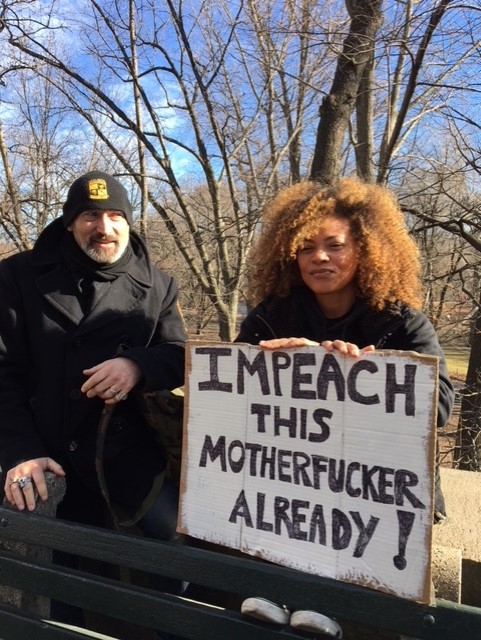Nation
Devil’s Due (A Defense Lawyer’s Approach to Lawfare)
Jim Coleman (pictured below) is a longtime law professor at Duke and Co-Director of the Wrongful Convictions Clinic.
In my day job, I constantly fight law enforcement officers, prosecutors, and judges who are indifferent to whether my clients are innocent.

Judges disregard misconduct by cops and prosecutors; indeed, they often protect them from public scrutiny.
Jimmy Stewart Meets H.P. Lovecraft
This Nunes memo set me thinking.
Who’s Afraid of Michael Wolff?: The Uses of “Fire and Fury”
I’m a freak about timing. To me, a story without a peg is like a song without a hook. But it’s taken me quite awhile to find a copy of Michael Wolff’s Fire and Fury: Inside the Trump White House. Since I’m less interested in the book than in its reception, I guess it’s okay to file late.
Telltale Signs
I only recently caught up with Ed Schultz’s swerve from “prairie populist” to pro-Kremlin anchor-man. He got his change in the summer of 2016 after he’d lost his gig at MSNBC. Schultz’s plasticity has always been apparent. (I posted on Big Ed’s persona—“250 pounds of ham and main chance”—back in 2010.)
The Fascist International and Its Fellow Travelers
Greil Marcus responds below to queries from Justyne Dillingham who asked Marcus to comment on (1) the motive behind Putin’s interference in the American election and (2) the “line” of certain leftists–writing in “publications like The Nation and The Intercept as well as mainstream outlets like The London Review of Books”—who claim Russia-gate is “a hoax made up by the intelligence agencies and pushed by Democrats to excuse their failure to win last November.”
Bench Press (A Protest Against One of Trump’s Worst Judicial Nominees)
Rev. Barber submitted the following letter to the Senate in opposition to the re-nomination of Thomas Farr to the Federal Judiciary. His words are suffused with felt knowledge of the past: “I have spent my whole life in North Carolina, and I know this nominee. I know what he’s done, what he stands for and just how detrimental he will be to the people of North Carolina and this nation if confirmed.” But he doesn’t ask the Senate to take his word for it. He provides facts and links that make his case undeniable.
Get Up!
Rev. Barber is a born preacher but he’s a master of other forms of rhetoric too. After you get your lift here, try his letter to Senator Grassley above.
Women’s March in NYC



My friend was holding a coffee from Joe’s. It was noon. I said I wanted coffee from the $2 place. We were on Columbus and 86th Street, heading for the march.
What Is It ‘Bout Men: Toward a More Nuanced Response to #MeToo
I confess I have very complex and conflicted feelings about #MeToo’s virtual movement.
“Gigi” in a Gay-Friendly Age
Every year produces a gay sensation, and you can tell a lot about the preoccupations of the day from the story it tells. The current candidate, on track to be a Best Picture nominee, is Call Me By Your Name, a gushy–or, if you prefer, alluring–tale of lust between a 17-year-old boy and a man in his mid 20s.
Multiculturalism Versus Identity Politics
Multiculturalism preceded identity politics and has become identified with it. I think it important to distinguish between the two, even oppose them.
The Shape of Things to Come
There are no excuses…forced, non-negotiated sexual encounters are repugnant. Promises of career advancement or threats of career derailment used as a weapon in a war of desire, are repugnant. All such behaviors are repugnant. What about lesser transgressions?
With Reservation
Wild River, recently available on pay-per-view, centers around the gang rape-murder of a young Native American woman on a Wyoming reservation.